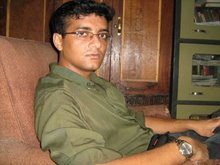
In the city of predictable prejudices, Iram Rizvi had run into a surprise.
The 25-year-old woman from Kashmir was being asked by the landlord to leave the house because she was a Kashmiri. But the landlord was no Muslim-hater. He was a Muslim himself.
“I have always faced remarks like ‘Kashmiris cannot be trusted’ and ‘all the Kashmiris are opportunists’. Who is not an opportunist?” asks Iram, sitting in a car in front of Jamia Millia Islamia University, as it rains incessantly outside.
“I have left Srinagar to do something good for myself and secure my family’s future. Is there any opportunism in that?” she says.
Rizvi says she faced discrimination and prejudice in an excruciating search for accommodation after she moved from Srinagar to the national capital in 2006.
She stayed for some time with a distant relative in Malviya Nagar, in a rented apartment owned by a Muslim. But just because of her Kashmiri identity, the landlord objected to Rizvi’s staying with her relative, and she had to leave.
It was much later that she could find a hostel in the university.
Rizvi worked as a journalist in Kashmir before moving to New Delhi to pursue her PhD in Mass Communication from Jamia Millia Islamia’s Mass Communication Research Centre. In Srinagar, she worked for local newspapers Daily Etalaat and the Greater Kashmir.
At Jamia, her topic of research is ‘The coverage of Kashmir conflict by newspapers’.
Breaking generations-old conventions in conflict-ridden Kashmir, hundreds of Kashmiri youth like her are beginning to travel outside the region to study and work, unlike even five years earlier when most remained cocooned in the Valley.
“I am an Indian but in Delhi it is very tough for a Kashmiri to stick to his or her identity, and if you are a girl it gets tougher,” says Rizvi, as traffic whizzes by on the rain-soaked street.
“For a girl from a small town like Srinagar it’s very tough to get accustomed to the lifestyle of a cosmopolitan city like Delhi,” she says.
And then, there are the slurs.
“Once I met a person in train. And when he came to know about my Kashmiri origin he said ‘These Kashmiris eat in India and sing about Pakistan’.”
Rizvi, who veils her face with a scarf in public, says “the veil makes me feel secure and look decent”, and adds that the only consolation is that she has not been subjected to taunts like many others for her scarf.
But stereotypes do play up often, like the day when her non-Muslim friend said of her visits to beauty parlours: “How can a girl wearing a veil go to the beauty parlour?”
Following is the lilnk to this article in Hindustan Times:-


1 comment:
Bhai you have a great blog and I have read this article before it's awesome.
Post a Comment